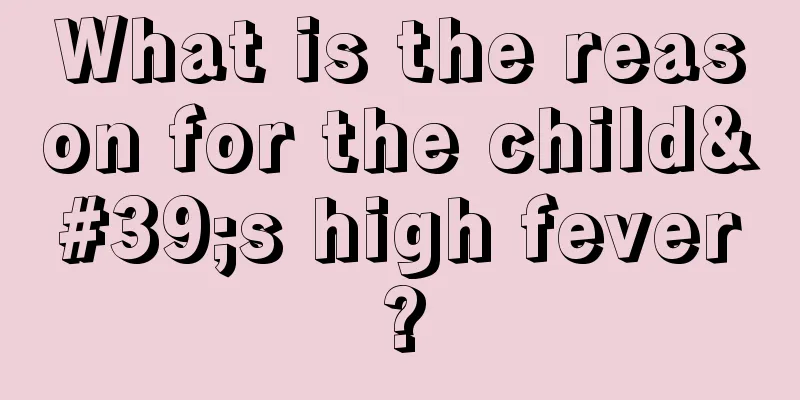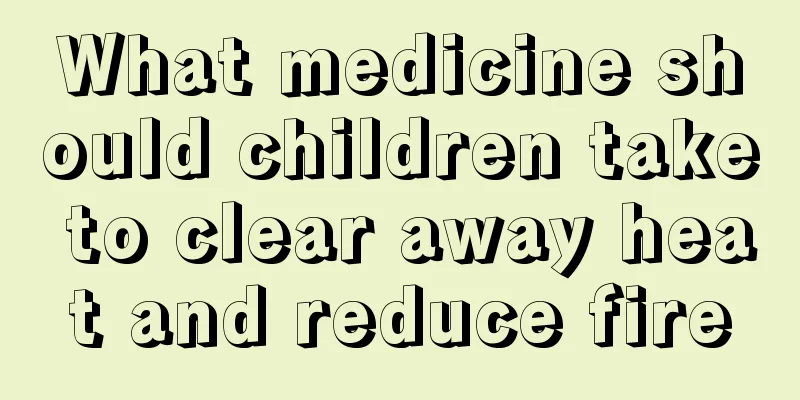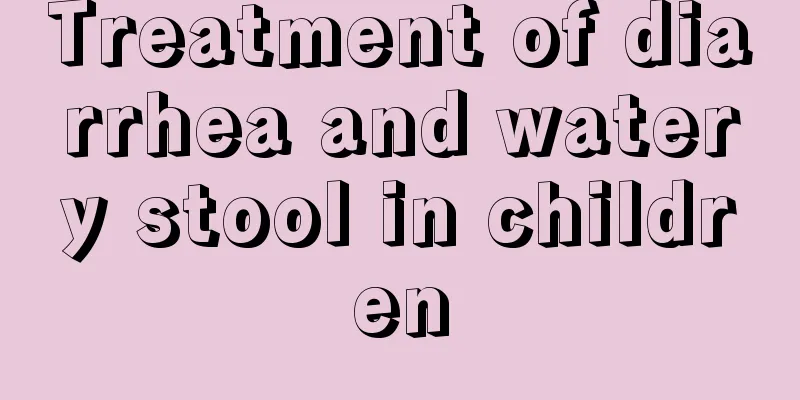What is the reason for the child's high fever?

|
Fever is a disease that many children will suffer from. If it is not treated in time, it will lead to high fever. Some children have persistent high fever, which is usually caused by dehydration, hypernatremia, hyponatremia, high fever and convulsions, etc., so it must be taken seriously. 1. Dehydration In the hot summer, children lose more water through breathing and skin than in other seasons, and the amount is even greater when they have a fever. For every 1°C increase in body temperature, the amount of water lost per kilogram of body weight per hour increases by 0.5 ml. When you sweat profusely while taking antipyretics, you lose more water from your body. Dehydration not only makes it difficult to reduce fever (dehydration itself can cause fever in young infants), but also affects metabolism and blood circulation, causing acidosis, etc. Therefore, children with high fever must be encouraged to drink water and, if necessary, receive intravenous drips under the guidance of a doctor. 2. High fever cramps Generally speaking, children under 6 months old or over 6 years old will not suffer from cramps due to high fever. Among children aged 1 to 6 years old, only 2% to 5% will experience this type of cramps. Cramps often occur when a high fever suddenly occurs. Cramps only occur once per fever and rarely more than twice. As long as the convulsions do not last long and are handled properly, they will not have much impact on the child's health. But repeated or persistent cramps can cause cerebral hypoxia and damage the brain. 3. Hypernatremia or hyponatremia At the beginning of fever, dehydration occurs, the sodium concentration in the blood increases, the blood becomes hyperosmotic, and dry mouth, extreme thirst, irritability, and even delirium or convulsions occur. The fever will not only not subside but will become higher. If the fever persists for a long time and the diet is not appropriate, hyponatremia will occur, and the child will become extremely tired and even apathetic or comatose. These conditions are more common in infants and young children who are usually malnourished. 4. “Brain damage” Generally, fever has little effect on the body's tissues and organs, and can accelerate the development of resistance. When the body temperature exceeds 41°C, proteins in the body will decompose, causing cerebral edema and resulting in death or sequelae of encephalopathy in the child. Therefore, if a child has a high fever above 40°C, emergency treatment is required. |
<<: What causes swollen lymph nodes in the neck in children?
>>: What should I do if my child has a poor memory?
Recommend
What to do if your 1-year-old baby has symptoms of heat stroke
In the hot summer, children's immunity is rel...
Reasons for baby's rib valgus
You may not know that the symptoms of baby's ...
What are some ways to make your child grow taller quickly?
Nowadays, some children are much shorter than oth...
What should you pay attention to when your baby eats complementary food for the first time?
When babies reach four or six months old, they wi...
Nursing of acute conjunctivitis in children
Eyes are the windows to our soul, but in spring a...
What to do if a three-year-old child has toothache?
Toothache can occur at any age. The symptoms and ...
Why does the baby often stare blankly?
It is said that spending five minutes a day is be...
What should I do if my child has nail malnutrition?
Many people say that a person’s physical conditio...
What is the normal body temperature of the baby during the month?
The baby may not be as comfortable after birth as...
There is a depression on the back of the baby's head. What's going on?
Babies are the flowers of the motherland and the ...
Can children drink chrysanthemum tea?
It is not suitable for children to drink chrysant...
What are the symptoms of cough mycoplasma infection in children?
Mycoplasma infection spreads very widely among ch...
What causes torticollis in children? Causes of torticollis in children
Torticollis in children, also known as goiter, is...
What to do with depression in high school students
High school students are more likely to suffer fr...
What are the reasons why three-month-old babies cry when feeding?
Women who have been mothers know that after the b...









